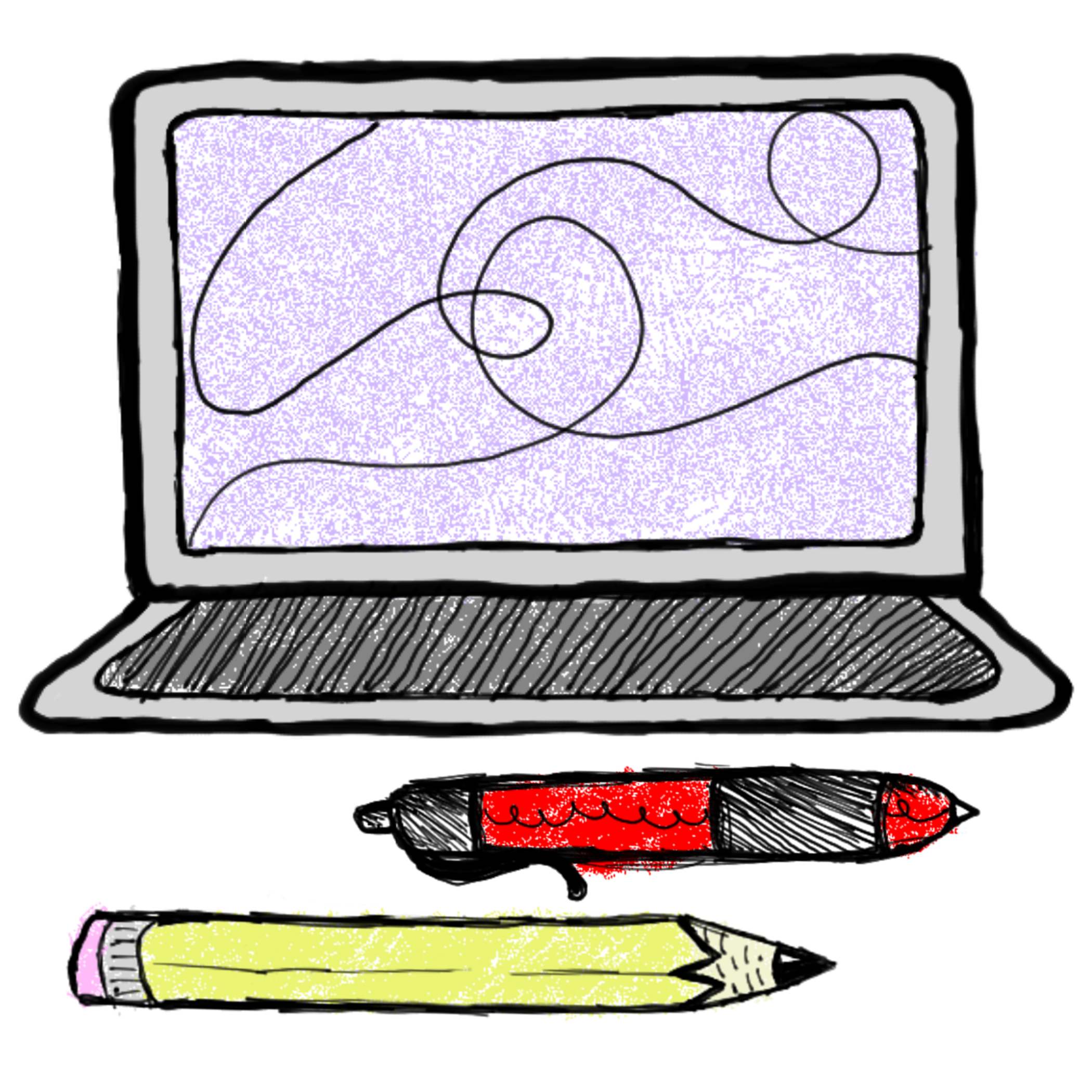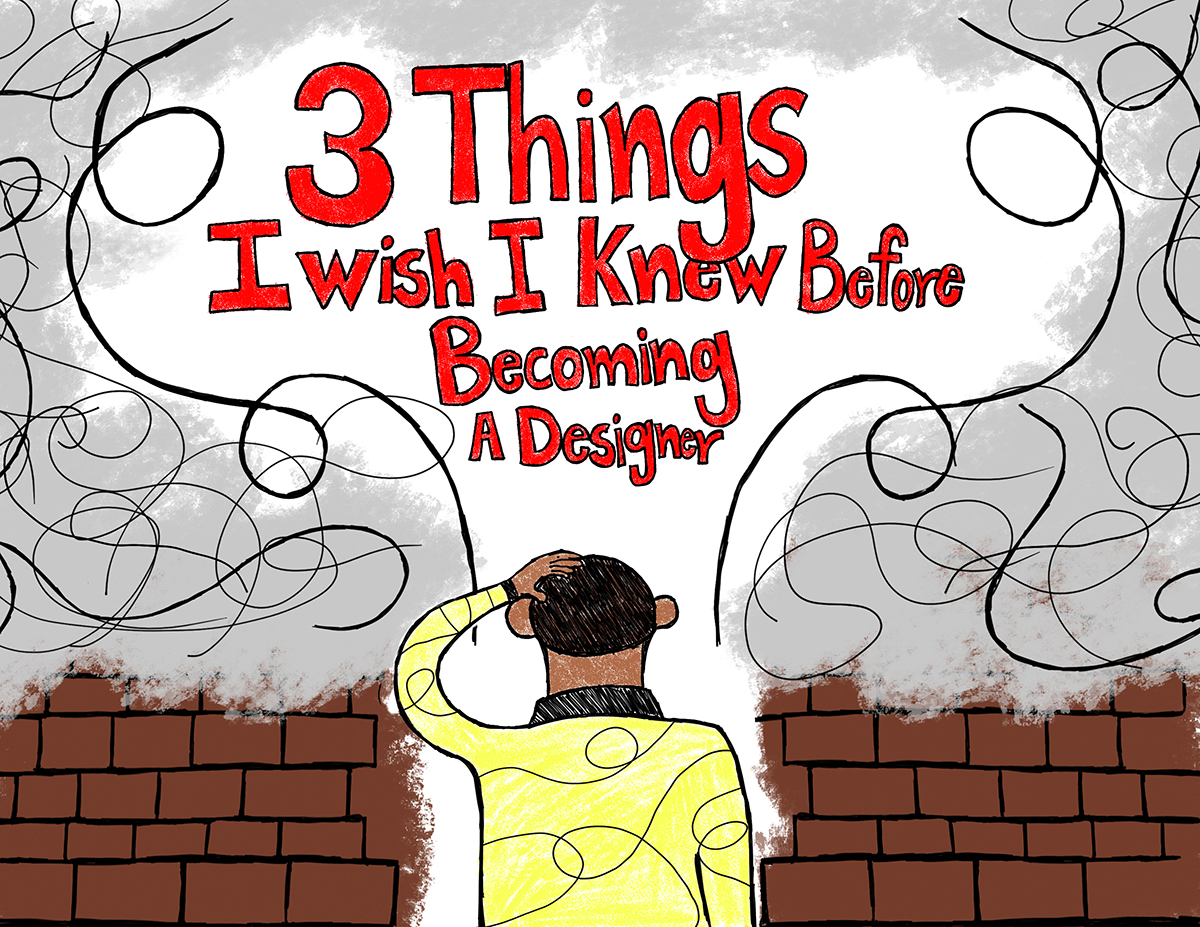3 Things I Wish I Knew Before Becoming a Designer
Hello, welcome to my website and my first official blog post (woohoo)! I’ve wanted to start a blog for a few years now and I’m excited to share my ideas with you – interpreted through art. So, this is the first of many blog posts where we’ll explore concepts of art, design, technology, social causes, and mental health – and hopefully gain some new perspective. As much as this is my journey to learn and grow, I hope you’ll come along for a few reads. I guarantee you’ll see some thought-provoking artwork and designs if you stick around :).
If you read the title of this article you already have a pretty good idea of what to expect. We’re going to be touching on 3 bits of knowledge I wish I’d had at the beginning of my career – that may be able to help you.
- Face it till you make it to beat imposter syndrome.
- Jack of all trades or master of none, who cares just do you.
- Not everyone will like your work but chances are there is someone who can relate.
It’s easy to get caught up in the idea of calling yourself a “designer”. Early on, I think recognition may have been the only thing I cared about or perhaps just learning new software – but it goes much deeper than acknowledgment or learning how to use tools.
1. Face it, till you make it. That’s how to beat imposter syndrome.
Has anyone else out there ever experienced ‘imposter syndrome’? Yeah, you’re not alone, ME TOO! If you’re not familiar with imposter syndrome, it can be described as the idea that you’ve only succeeded due to luck, and not because of your talent or qualifications. Everyone can experience this differently but for myself, it was rooted in self-doubt pursuing a creative career. Thinking this way caused me to second guess my designs and psych me out during interviews early on in my career. Don’t fall into this trap! I believe that we as creatives can be perfectionists and our own worst critics. When you’re in the thick of the day-to-day grind and learning about the industry it’s impossible to know the outcome of your future. It’s exhausting to take every step worrying about perfection. It’s much easier said than done but striving through the struggle will be a rewarding part of building your confidence. KEEP AT IT! Keep at the small jobs that are going to help you learn and grow. And take note that perfectionism is nearly impossible to achieve with something subjective like design/art. Eventually, with determination and continuing to create new work, you’ll stop second-guessing yourself. Questions and choices that once had you flustered will come easily in your skillset. That’s what I mean by Face it till you make it. Sometimes you have to just continue on with something like an “imposter” until you do it for so long you’re not an imposter but a professional. Professional imposter perhaps? It’s intriguing the tricks the human mind can play on itself, but just don’t fall for the B.S. If you’ve ever been unsure of yourself in a high stakes/level situation, let me tell you there’s a reason you made it there. It probably started with a lot of your hard work.

2. Jack of all trades or master of none, who cares.
We as humans hate being told what to do. When it comes to building your career, the design field is full of opinions on how to be successful. I’ve heard from professors, employers, and peers alike to hone in on one particular skill or discipline related to graphic design. That’s not bad advice, I’m just saying not to take it to heart because that’s not how it works out for everyone. It takes time to develop your artistic style and learn how you can use it to create original artwork. Rather I think a better way to word this advice is to have patience as you’re navigating your creative journey and figuring out the kind of artist you want to be. Even after discovering an artistic style you enjoy, that doesn’t mean you’re restricted to trying new techniques. While sharpening one particular skill can help set you apart, so can having diversity in your skillset. So long as you’re practicing continuous improvement in your discipline and learning new things you are on the right track of your journey.
3. Not everyone will like your work and that’s okay.
There’s a difference between creating for the sake of self-expression and creating for a paid job. When you’re creating for a paid job, you’re not creating your ideas but the clients. When you’re creating for the sake of making something new, you don’t have to meet certain client expectations. Regardless if it’s for work or play, when you create artwork you open yourself and your ideas up to criticism. Sometimes, it can be a major criticism that can be majorly discouraging. There are a few things I try to remember about this,
- When doing a paid job you’re creating someone else’s vision. If they are hypercritical that’s okay, don’t take it personally. Chances are they’re being critical of the design because it doesn’t fit their vision, which isn’t a personal attack on your character.
- If it’s not constructive feedback then don’t even give it the time of day. Many aspects of design are subjective. Some people don’t like certain colors and it’s not your mission to change their minds with your design.
- If it’s constructive feedback, respect the perspective. We all see and take in information differently. Sometimes you’ll get the best stroke of genius from a different perspective.


“Face it” til you make it ! That is my new phrase. I think there is so much power in showing up consistently to face a challenge until it no longer becomes your biggest challenge. I think that will be my mantra for a little while. Congrats on the first blog post! Looking forward to more 🙂
Thank you, Ari! I’m there with you 110% 🙂
Wow, did I need this! What a grounding and insightful blog. Thank you for taking the time to write this and share your experiences with us, Martin!
Thank you, Dina! 🙂 I’m excited to share more soon!